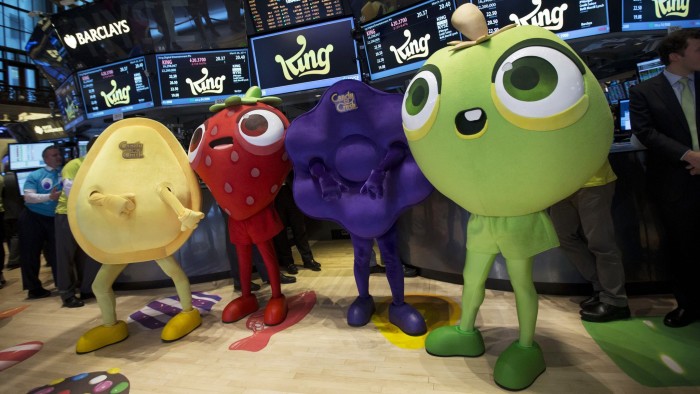Europe’s unicorns hit by herd mentality

Roula Khalaf, Editor of the FT, selects her favourite stories in this weekly newsletter.
In the tech world, a unicorn is a private start-up valued at $1bn or more. There were 156 of them worth $550bn last year, according to venture capital database CB Insights, but they have lately fallen out of favour with investors. The irony of a phenomenon named after something that does not exist is not now lost on commentators.
“There is some cachet and reputational value to being a business unicorn. It is, in many ways, marketing,” says Anand Sanwal, chief executive of CB Insights. That company recently suggested there was a correlation between the number of start-ups receiving a $1bn valuation and the timing of the blog post by Aileen Lee in November 2013 in which she is credited with coining the term “unicorn”. The tempo at which unicorns were created increased dramatically afterwards, CB Insights points out.
According to research by Atomico, the technology investment group, 40 unicorns have been created in Europe since 2003, compared with 128 in the US and 68 in Asia. So why Europe’s smaller number?
José Neves, founder and chief executive of Farfetch, a London-based fashion unicorn, says the difference between the US and Europe is cultural and begins with the approaches to risk taken by venture capital on the two continents and beyond. “Europe was always more cautious. This is good on the one hand as it creates greater stability — but on the other, Europe will never create a large social media company, for example, like Facebook, Instagram, LinkedIn etc.
“These ‘build it and they will come’ type businesses that need hundreds of millions invested to scale up before they generate meaningful revenue would only have been created in America. And these days even America won’t back them, so the incumbents who manage their cash well will have a huge advantage in the years to come.”
In an article for Venturebeat published earlier this year, venture capitalist Eugene Levin, a partner at Target Global, argued that it was the scarcity of later-stage investment in particular that caused Europe to lag behind and that the situation was getting worse. He pointed out that the average valuation of mergers and acquisitions in Europe was lower than in the US and that the gap was growing.
The European Commission says European businesses experienced a €90bn shortfall in venture capital investment by comparison with the US between 2008 and 2013.
A commission spokesman said that one of the main issues was the size of venture capital funds in Europe, which are on average about half the size of those in the US and therefore far less able to offer later-stage investment. There is also a smaller number of such companies.
He pointed to EU initiatives including the Capital Markets Union and the forthcoming pan-European venture capital fund of funds which are intended to stimulate an uptick in larger-scale investment. He also said that having a large amount of money to invest was only part of the solution: it was not possible to legislate for sentiment, particularly in order to encourage investment in privately owned tech companies which were not yet profitable at a time when the lowering of valuations has become almost routine.
Tommy Palm, chief executive of Resolution Games in Stockholm, was at King Digital Entertainment, the mobile gaming unicorn, when it launched its initial public offering after its worldwide success with Candy Crush Saga.
Fresh from an announcement at the Google I/O developer conference in California that Resolution will be making a game, Wonderglade, for Google’s new virtual reality platform, Daydream, he says: “Even though this is my fifth business, this is the first time we have gone the venture capital route,” he says.
“Previously we tried to keep costs really low and this time we were planning to do the same but we were contacted by venture capitalists at an early stage,” he says.
“We spoke to Swedish, UK and American investors. But one of the things that struck me is that there is just so much competition on the venture capital side in the US,” he adds. “There is a lot of American interest in Europe because the state of European VC means there are bargains to be had.”
Comments